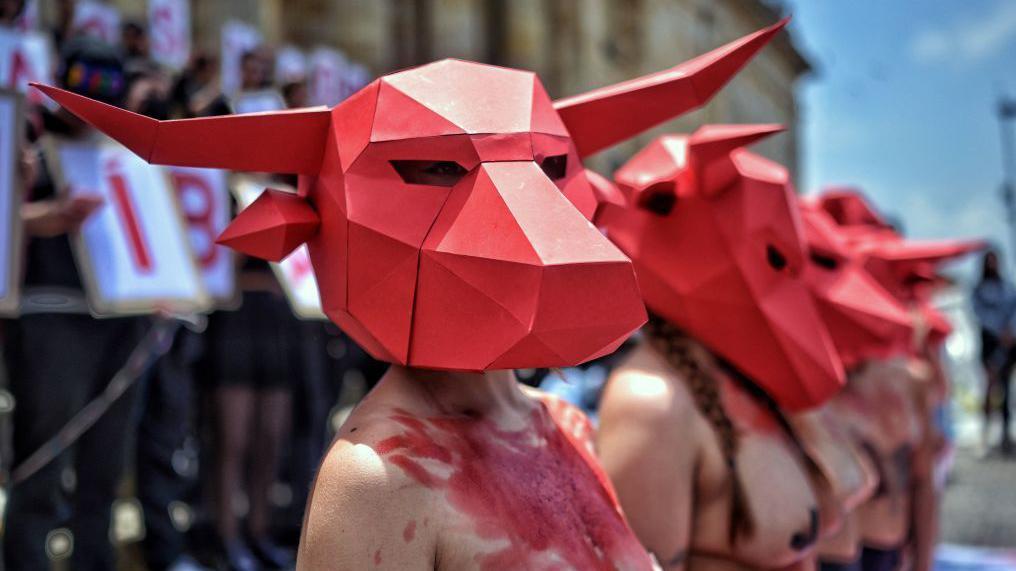After several successive attempts, the Colombian Congress approved a law prohibiting bullfighting in the South American country.
With 93 votes in favor and 2 against, the House of Representatives gave a definitive yes to the project, which also prohibits other types of “cruel entertainment with animals”, such as rejoneo (bullfighting that is done on horseback), bullfights and the calves.
What follows is that the text that was approved in the House be reconciled with the one that had been approved in the Senate, so that it later passes to presidential sanction. Both are expected to be simple procedures.
Bullrings in cultural and sports settings
The new law gives the government a period of three years to offer economic alternatives to people who work in bullfighting.
And it establishes that the bullrings are transformed into settings suitable for cultural and sporting events. The ban on bullfighting will come into force in 2027.
President Gustavo Petro reacted to the news from his X account. “Congratulations to those who finally managed to make death not a spectacle. Those who have fun with the death of animals will end up having fun with the death of human beings; “Just as those who burn books will end up burning human beings,” he wrote.

Happy with the decision
This Tuesday’s decision comes after numerous failed attempts to ban this tradition. In the words of representative Alejandro García, one of the promoters of the project: “We knew it would not be easy, but we never imagined it would be so difficult. This project has fallen 14 times.”
Senator Andrea Padilla, known for her animal rights struggle, said on her X account: “As is obvious, bullfighting people will demand the law: Of course, we will be there to defend it.”
Bullfighting is a centuries-old tradition in Colombia, although its popularity has been declining in the country.
In 2012, when he was mayor of Bogotá, Gustavo Petro prevented the use of public venues and resources for bullfighting, which made it de facto impossible to hold a bullfighting season in the city.
There are still cities like Manizales and Cali that consider this violent act as culture and there is still a bullfighting community and annual events.
Congresswoman Ana Rogelia Monsalve showed her discomfort over the approval of the law on the social network
“Today thousands of families are left without jobs, today thousands of people who have not even been identified are left without jobs,” he wrote.
During the debate in Congress, a bullfighter had described the project as a “political persecution that seeks to destroy our dreams and our rights.”
Seven countries continue to allow bullfighting in the world: Ecuador, Spain, France, Mexico, Peru, Portugal and Venezuela.

Click here to read more stories from BBC News Mundo.
You can also follow us on Youtube, instagram, TikTok, x, Facebook and in our new whatsapp channelwhere you will find breaking news and our best content.
And remember that you can receive notifications in our app. Download the latest version and activate them.
- Omacha: the fascinating story of the Colombian “dolphin man” named National Geographic Explorer of the Year
- The emotional mourning of Natalia, the chimpanzee who has been carrying the body of her dead calf for 3 months
